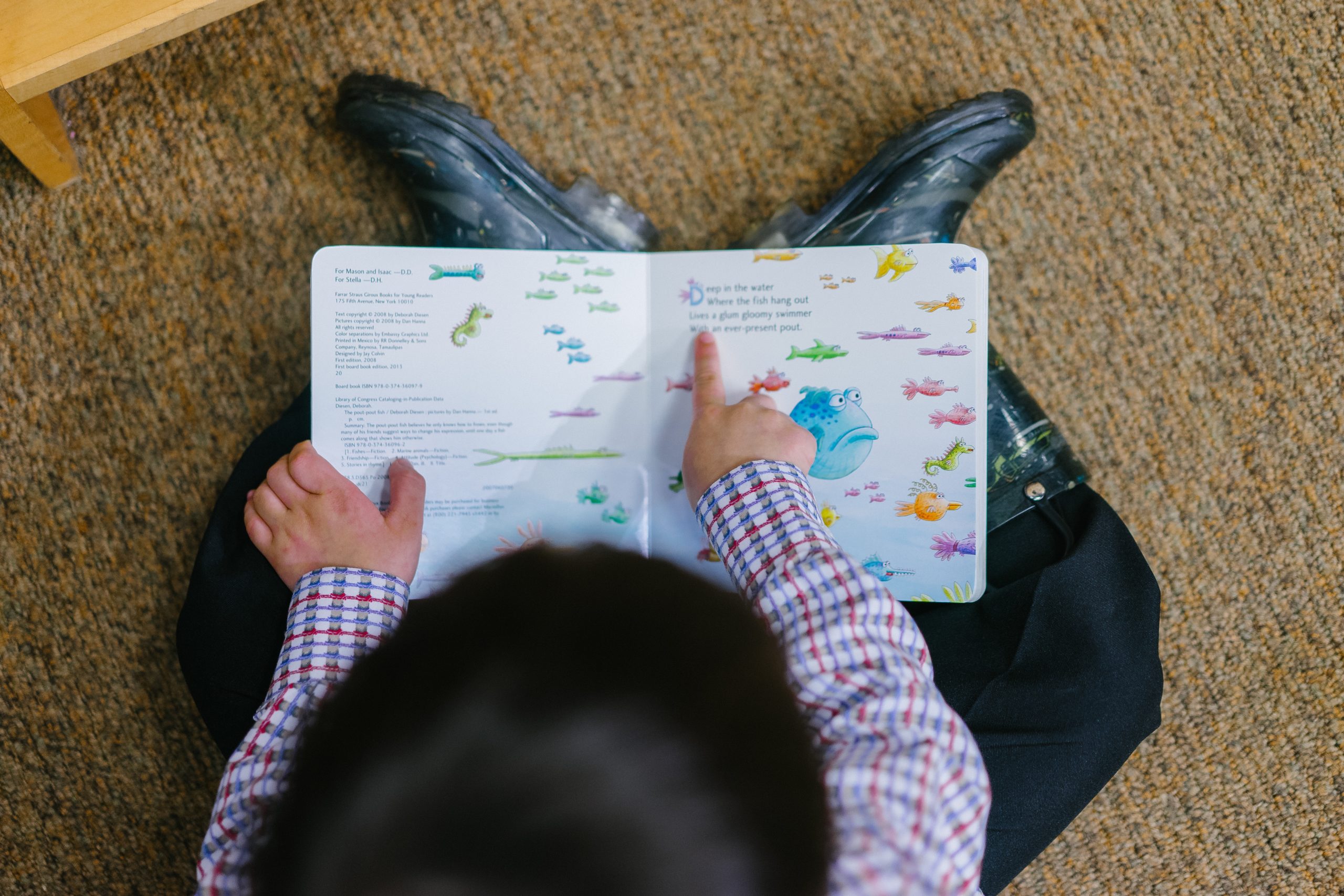
5 ways to turn your reluctant reader into a total bookworm
It can be frustrating when your formerly bookworm kid suddenly stops reading. And it’s scary when your child’s teacher says they HAVE to read a certain amount of books (usually in a specific reading level) or they’ll be in danger of falling behind in their grade level.
You’re stressed out, your kid is stressed out, and it’s very, very easy for this situation to turn into fights and arguments and unhappy families.
I see quite a few families who’re in this same situation at my library. Usually they’ve gotten to the point where the the kid is completely uninterested in a) reading the book, b) picking their own book, c) paying attention to their parent, and the parent is COMPLETELY stressed out. Often they’ll just grab any book within the right grade level, and leave.
This makes me so sad– I want every kid who comes to the library to be able to find books that they’re interested in reading, and I want parents to be able to support their kid in finding those books. (That’s why I started this website!)
*This post contains affiliate links. Read our full disclosure policy here.
Book lists are great for finding recommendations of what to pick up, but how do you get your kid to actually READ the books on their own, and enjoy them?
Straight up: it’s hard. You have to be sneaky about it, and you have to be patient. But it CAN be done.
Here’s how.
1. Read with them.
There’s lots and lots of info about the benefits of reading to younger children, particularly before they start Kindergarten. It’s not unusual for families to spend lots of time reading to their younger kids– but what about reading with older kids?
There’s a misconception that parents don’t need to keep reading with their kids once they get to about first grade. Usually by that point kids are starting to read by themselves, and so parents back off a bit and let them read independently. Which is great! Kids need practice reading alone, so they can become stronger readers.
However, there’s a LOT of good reasons to keep reading together!
Kids who are moving from easy/early reader books into harder chapter books often lose motivation to keep reading because the book is longer, the story more complex, and the vocabulary more difficult. I see kids turn into non-readers ALL the time once they hit 3rd or 4th grade and suddenly can’t make it through longer (100+ page) books.
It’s not because they’re stupid, or they just suddenly hate reading. It’s because they’re struggling with the book format in some way.
This is where reading together, out loud, can help.

Listening to a story gives them the opportunity to think more deeply about the story, because they’re not worried about struggling with their own reading level. It lets them relax, and not worry about making it through a long book alone. Teachers keep reading books to their classes up through 6th grade for this very reason– it helps build a reader’s confidence without putting too much pressure on them.
Reading together also gives families the opportunity to spend time together! At that age (8-12), kids still really enjoy spending time with their parents, and they’re more likely to stick around for a book if you’re there reading it with them.
Also– kids are little sponges, and they suck up all kinds of behavior and habits from their parents. If they see you reading a book (even the same book as them!), they’ll feel more comfortable reading as well.
If you don’t read any books yourself, how can you expect your kid to feel excited about reading?
That said, if you’re not sure if you can read a whole chapter book out loud yourself, try mixing in an audiobook. Or if you want more tips about reading aloud, try checking out Jim Trelease’s The Read-Aloud Handbook.
2. Let them pick their own books.
Boredom is a killer. Kids who are bored with books will not want to read them.
Maybe they’ve “read everything good.” Maybe they can’t find anything they want to read. Maybe they’d rather play video games because trying to finish a 300+ page chapter book takes too long and they want something easier to consume. They’ve given up on books because they can’t find the ones they want, and they’re bored.
I get parents in my library all the time who’re freaking out that their kid isn’t reading and the teacher wants them to read books for their reading program. It totally stinks because it forces everyone to pick a book for the WRONG reasons.
Books should be read because they story is interesting, or it’s an award-winner, or it’ll improve the reader’s life in some way– even if the improvement is just “I really enjoyed this book.” Books should NOT be chosen because they have a lot of points, or as a last resort before leaving the library.
So! Let your kid find a book themselves.
You can guide them, of course, with either your own suggestions or perhaps a reading list from a teacher or librarian (or this website!). If they need to read a chapter book, make sure they’re looking in the chapter book section. But give them the final decision on what they want to read.
This can take a while, so build in a good amount of time and be patient, but make sure they’re actively deciding on a book. Don’t just let them grab something to get it over with: they need to read the title, the back cover, and at least the first page to see if it’s something they’ll like.
You can also tie this into my first suggestion: ask them to find a book that you both can read together. This’ll get them excited to find something, and they’ll be more motivated to finding a GOOD book.
3. Make it a game.
My library’s Summer Reading Club is JAM PACKED with families who only come to the library during the summer– specifically because they want to participate in the reading club. Which is great! We do SRC to motivate kids to keep reading over the summer months, and we lure them in with programs, prizes, and daily fun events.
Why not try something similar at home?
Gamifying reading is a sneaky way of motivating kids to read. They want to WIN, and winning in a game with books means READING.
Make your own Family Reading Club game, where finishing a book gets you points. Give bonus points for writing a review, drawing a scene from a book, or doing a craft related to the story. Prizes could be special days out at the beach, going to a local museum, dinner at a fun family restaurant, etc. etc.
4. Start a mini book club with their friends.
Kids get book recommendations from their friends– they talk about books they’ve read and enjoyed, ones they’ve hated, what they’re reading for class, etc. etc. Bookworms who hang out with other bookworms are ALWAYS talking about books.
Take advantage of that! Grab three or four of your kid’s friends and start a mini book club. They’ll all read the same book and then bribe with snacks to come over one weekend to talk about it.
This can be as formal or as informal as you want. The main thing is to let them decide which book (or book genre) they want to read, and schedule regular meetings. They don’t have to be super long– even twenty minutes would be fine, as long as they’re talking about the book.
The goal is to get your kid excited about reading a specific book because they want to have something to talk about with their friends. Kinda like peer pressure, but fun!
5. Reread a favorite book.
Sometimes the only way forward is to take a step back: encourage your child to reread a favorite book of theirs and then talk about it with them. This can be a good way to jumpstart a love of reading again, especially if your kid stopped reading because they said they had nothing good to read.
For instance, maybe they were really into the 39 Clues series a few years back, but never finished reading the whole thing. Encourage them to reread the first few books, and then see if they want to continue with the series now that they’ve gotten started again.
You could tie this into the book club or family reading club idea as well– or even read it along with them! They’ll love talking about a favorite book, and they’ll love sharing it with their friends and family even more.
Kids who aren’t motivated to read aren’t lazy or stupid. They’re stuck! They need help and guidance to restart their love of reading, and you can be a major influence in that. Be patient with them, and dedicate some time and energy to encouraging them to rediscover why reading can be fun and rewarding.
It’ll be worth it in the end!

